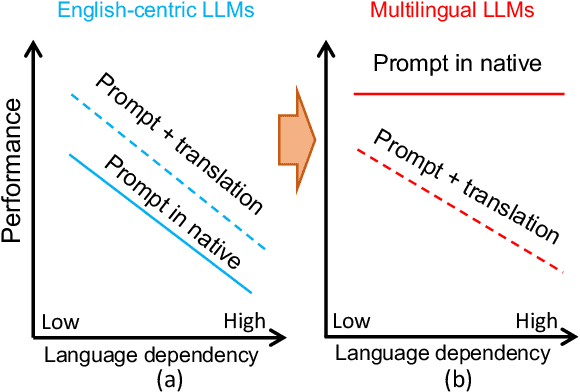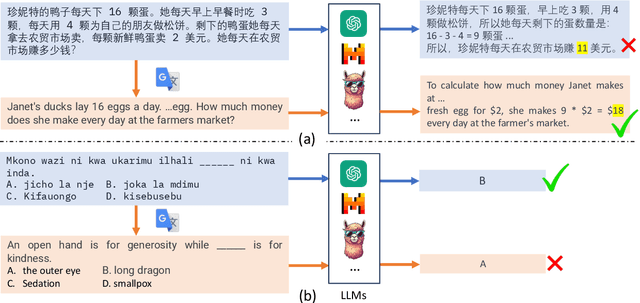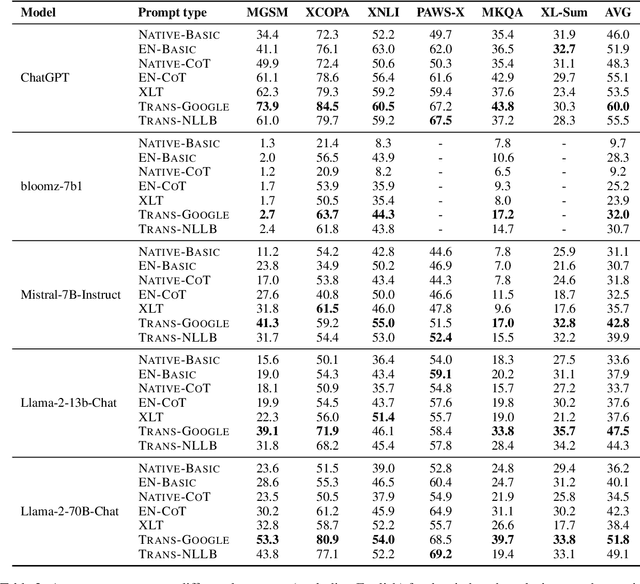Is Translation All You Need? A Study on Solving Multilingual Tasks with Large Language Models
Paper and Code
Mar 15, 2024



Large language models (LLMs) have demonstrated strong multilingual capabilities; yet, they are mostly English-centric due to the imbalanced training corpora. Existing works leverage this phenomenon to improve their multilingual performances on NLP tasks. In this work, we extend the evaluation from NLP tasks to real user queries. We find that even though translation into English can help improve the performance of multilingual NLP tasks for English-centric LLMs, it may not be optimal for all scenarios. For culture-related tasks that need deep language understanding, prompting in the native language proves to be more promising since it can capture the nuances related to culture and language. Therefore, we advocate for more efforts towards the development of strong multilingual LLMs instead of just English-centric LLMs.
 Add to Chrome
Add to Chrome Add to Firefox
Add to Firefox Add to Edge
Add to Edge